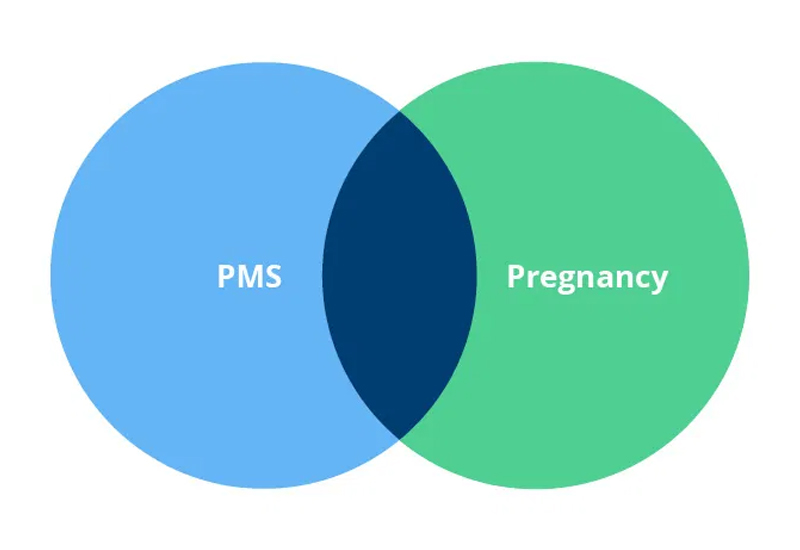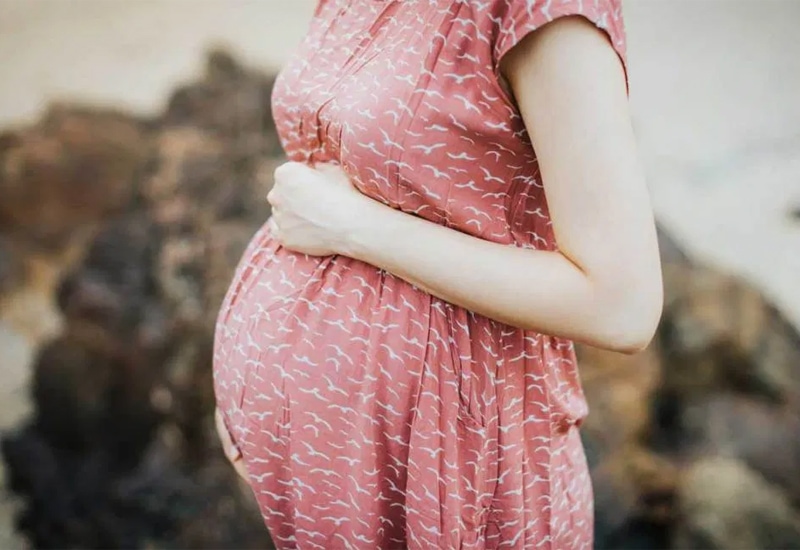PMS Symptoms vs. Pregnancy Symptoms
Loretta Pride • Updated on June 21, 2023
Premenstrual syndrome, commonly referred to as PMS, is a combination of emotional and physical symptoms that women in their childbearing age experience. These symptoms start a week or two before the menstrual periods begin, usually after ovulation has taken place. PMS happens partly as a result of the hormones that are released during the menstrual cycle, and they vary in different women. Premenstrual symptoms begin to fade after the menstrual period starts because the progesterone and estrogen hormones begin to rise again.
It is not definite that all women experience PMS during their menstrual cycle. Some women have been found to get their periods without having any symptoms related to PMS, while other women experience very severe PMS symptoms, which lead to premenstrual dysphoric disorder.
Pregnancy symptoms, on the other hand, are physical and emotional symptoms that women experience during their pregnancy stage. These symptoms are a result of the hormones released during pregnancy, which affect the functioning of the body and generally, the emotional condition of pregnant women.
The symptoms experienced during the early months of pregnancy can be similar to premenstrual symptoms. It can be hard to distinguish between PMS and early signs of pregnancy.
Similar symptoms of PMS and pregnancy
The signs and symptoms of PMS and pregnancy can be similar, depending on different women. Some of the related symptoms for the two are such as:
- Headaches and backaches
- Fatigue
- Mood swings and mood changes resulting in crying spells, anxiety, insomnia, anger, depression and irritability
- Weight gain
- Food cravings
- Tender, enlarged and painful breasts
- Mild abdominal cramps

Difference between PMS and pregnancy symptoms
The symptoms associated with PMS and pregnancy can be similar in women, but they are somewhat nonspecific, which is what brings the difference.
Cramping
Cramping of PMS is more impactful compared to that of pregnancy. Pregnant women experience less painful cramps during the early stages of the pregnancy. During the menstrual cycle, women experience abdominal and pelvic cramping, and the symptoms are specific and troublesome for women with PMS. The cramping experienced during PMS is called dysmenorrhea. These cramps decrease as women age and after the first pregnancy. During pregnancy, some women may experience mild cramping in the early stages.
Nausea and vomiting
This is more prevalent in early pregnancy than it is for Premenstrual syndrome. They are, however, not common symptoms of pregnancy but just typical symptoms. Nausea is, at times, a symptom of PMS, but it is not always a sign of PMS as it is for pregnancy. Nausea is considered to be an unusual symptom of PMS, which makes it hard to be recognized immediately by women suffering from it. Vomiting, on the other hand, is rarely induced by PMS, but it is a common symptom for pregnant women, especially during the morning, commonly known as the morning sickness.
Food cravings and aversions
Food cravings and aversions are a common symptom for women both in pregnancy and in PMS. During the onset of the menstrual period, women experience increased appetite and cravings for certain foods such as sugary foods, chocolate, sweets, and, at times, salty foods. Food cravings are, however, common for pregnant women as well, but they are more intense and specific than for PMS. Pregnant women tend to lose interest in some foods they used to love, and they get easily irritated by particular tastes and smells, which can last the entire pregnancy.
Bleeding
The bleeding experienced during menstruation is different from that of early pregnancy. During early pregnancy, bleeding is as not as heavy as that of menstruation. Pregnancy bleeding is not as long as well, and it is lighter in color compared to menstrual bleeding. It is light spotting that occurs around the same time as when menstrual periods are expected. This mild spotting occurs at around the time of the implantation of the embryo into the uterus, commonly known as implantation bleeding.
Fatigue
Fatigue is a common symptom for women in the early stages of pregnancy. Women experiencing PMS also tend to have fatigue, but their fatigue ends with the start of a menstrual period, unlike that of pregnancy, which persists during the term.
Pain in the head, back, and neck
Headaches, backaches, and neck aches are frequent for pregnant women and with PMS. Women with PMS experience headaches and pains in the lower back right before the period starts. A study conducted revealed that women with more inflammatory markers experience more severe back pains than those with less inflammatory markers. These pains are triggered by the fluctuating levels of progesterone and estrogen levels in the body, especially for women with a history of migraines. Lower back pains are also common for pregnant women, especially during early pregnancy stages. This pain is a result of hormonal changes during the term. During pregnancy, headaches are easily triggered by certain smells and tastes.

Symptoms specific to pregnancy only
During pregnancy, women experience a milky discharge as well as darkening of the nipples. This is an early sign of pregnancy and a symptom that women with PMS don’t experience.
Missing periods are also experienced during pregnancy only and not during PMS. A missing period is the first sign that you could be pregnant, especially if your period is a week or more late. If you miss your period and you are not pregnant, it could be a sign of other complications associated with PMS but not necessarily PMS.
Frequent trips to the toilet are also very common for pregnant women. Pregnancy puts a lot of stress on your bladder, which makes you feel the need to relieve yourself more often. This symptom is, however, not experienced during PMS, but it can be experienced if you have other health problems such as Urinary Tract Infections.

Symptoms specific to PMS only
Menstruation is the most apparent symptom of PMS that is not experienced during pregnancy. You can not get a menstrual period when you are pregnant. The only form of bleeding experienced during pregnancy is spotting, which happens during the early stages of the pregnancy, but it is not as dense and severe as it is for menstruation.
